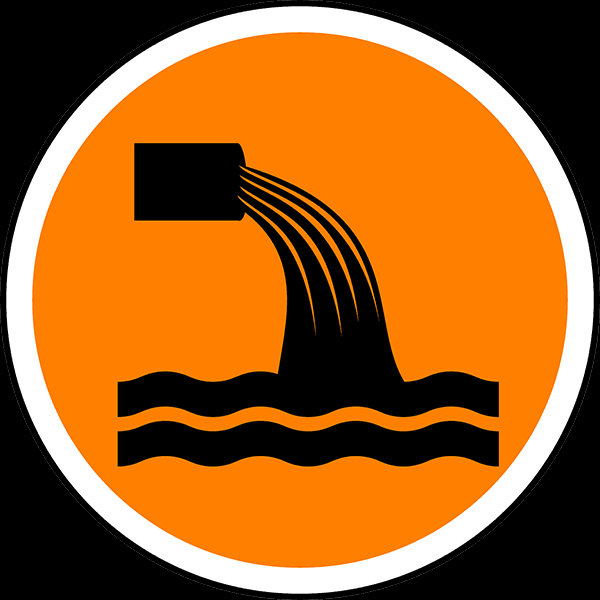What Does Reclaim Waste Mean?
What Does Reclaim Waste Mean?
Blog Article
Some Known Questions About Reclaim Waste.
Table of ContentsIndicators on Reclaim Waste You Should KnowThings about Reclaim WasteGet This Report about Reclaim WasteReclaim Waste Can Be Fun For AnyoneOur Reclaim Waste Statements
Residential sewer waste refers to the waste and products from a property septic container. The proper administration and disposal of residential sewer waste require liquid waste to be moved to a sewage therapy plant where the appropriate techniques and equipment are applied to cleanse and dispose of waste.
Industrial waste frequently consists of prospective threats, such as combustible products or a mix of liquid and strong waste items, and calls for a much more innovative and thorough disposal procedure. The disposal of business waste normally entails the filtration of waste prior to transport to make certain secure and correct disposal. Hazardous waste is developed from results and drainage of commercial processes and manufacturing.
This sort of waste can not use the exact same sewage monitoring transport or procedures as septic or business fluids. The hazardous waste administration process requires the evaluation and testing of liquid waste before it undertakes the disposal procedure (liquid waste disposal melbourne). Overflow waste is the liquid waste that originates from overflow and excess stormwater in very inhabited locations or cities
Overflow waste can cause contamination and flooding if not handled effectively. Ensuring correct waste administration can prevent calamities and minimize environmental injury.
The Only Guide to Reclaim Waste
Call PROS Solutions today to find out about our waste administration and disposal solutions and the proper methods to care for the fluid waste you generate.
(https://www.find-us-here.com/businesses/Reclaim-Waste-Laverton-North-Victoria-Australia/34166924/)Do you recognize what occurs to your water when you end, flush the commode or drain the cleaning equipment? No? Well, it's worth recognizing. This so-called 'wastewater' is not only an essential resource but, after therapy, will certainly be released to our land, waterways or the sea. Used water from commodes, showers, bathrooms, kitchen sinks, washings and industrial processes is referred to as wastewater.

water made use of to cool machinery or tidy plant and devices). Stormwater, a kind of wastewater, is runoff that moves from farming and city locations such as roofings, parks, yards, roads, paths and rain gutters right into stormwater drains pipes, after rain. Stormwater flows untreated straight to regional creeks or rivers, eventually reaching the sea.
The Reclaim Waste PDFs
In Queensland, a lot of wastewater is dealt with at sewer treatment plants. Wastewater is transferred from domestic or industrial sites through a system of drains and pump terminals, referred to as sewage reticulation, to a sewage treatment plant. Local governments develop, maintain and run most sewer treatment plants. Operators are certified under the Environmental Management Act 1994 to discharge treated wastewater at an appropriate environmental requirement right into rivers.
The Department of Natural Resources suggests neighborhood federal governments regarding managing, operating and maintaining sewage systems and treatment plants. In unsewered areas, city governments may need homeowners to install specific or house sewer treatment systems to deal with residential wastewater from bathrooms, kitchen areas, shower rooms and laundries. The Department of Natural Resources authorizes the use of house systems when they are verified to be effective.
Most stormwater receives no therapy. In some new class, therapy of some stormwater to remove clutter, sand and crushed rock has actually begun utilizing gross toxin catches. Wastewater treatment takes place in four phases: Eliminates solid matter. Larger solids, such as plastics and various other objects mistakenly discharged to sewage systems, are eliminated when wastewater is passed through screens.
Wastewater then moves right into large containers where solids settle and are eliminated as sludge. Grease and residue are skimmed from the surface. Makes use of tiny living microorganisms called micro-organisms to break down and eliminate remaining liquified wastes and fine fragments. Micro-organisms and wastes are incorporated in the sludge. Eliminates nitrogen and phosphorus nutrients that could create algal blooms in our waterways and intimidate marine life.
The 3-Minute Rule for Reclaim Waste
Nutrient removal is not available in any way sewer therapy plants because it calls for expensive specialised devices. It is coming to be extra usual in Queensland. Clear liquid effluent generated after therapy might still consist of disease-causing micro-organisms. If this effluent is launched right into waterways such as rivers or the sea, the micro-organisms will at some point die out.

This generally indicates wastewater has to be dealt with or pollutants removed prior to it can be discharged to rivers. The majority of wastewater moves right into the sewerage system. Under the Act, regional governments carry out authorizations and licences for ecologically appropriate activities (Ages) including wastewater launches that might have a directory local effect. The department carries out approvals and permits to Ages entailing wastewater launches that might have a regional or statewide influence.
Get This Report on Reclaim Waste
Tracking provides factual information concerning water quality and can confirm that licence conditions are being satisfied. The details acquired with surveillance provides the basis for making water quality decisions.
Report this page